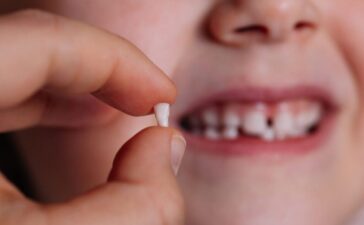A TTH (tension-type headache) is moderate or mild pain, usually described as the feeling of a very tight band around an individual’s head. TTH is one of the most common headaches, but the causes are not understood well.
Treatments for TTH are available. According to Kosak Chiropractic & Acupuncture experts, a TTH is normally a balance between using medications appropriately, getting effective non-drug treatments, and practicing very healthy habits.
Causes
There are two main schools of thought focusing on the causes of TTH. One of them is that headaches can lead to muscle tension.
A recent survey points to muscle-contraction theory. This survey involved patients that received botulinum toxin (botox) injections that paralyze temporal muscles. Regardless of the muscles freezing, patients didn’t observe any decrease in headaches.
Another study points to headaches caused by some trigger points in myofascial tissue – a tissue encasing your bones and body’s organs. Some of these triggers include the following:
- Fatigue
- Smoking
- Teeth grinding or jaw clenching
- Sinus infections
- Caffeine
- Alcohol use
- Stress
Why It Happens
Researchers don’t know the connection between headaches and crying. Usually, when an individual is crying, they can experience strong emotions or pain that puts the body under pressure or stress.
The body usually releases hormones, like cortisol, when under stress, causing various emotional and physical reactions.
Crying as well engages facial muscles that might result in tension around the neck, head, and face. These physical and emotional processes can be liable for triggering a few kinds of headaches.
Types
Healthcare experts break down TTH into two major types. They basically base these types on frequently you have headaches. Some of these include:
- Chronic tension-type: It is described when headache days outnumber days without experiencing a headache. It happens 16 or more days every month.
- Episodic tension-type headache: Happens in less than 15 days. Your healthcare provider may call it infrequent if you have a few headaches every month.
When to Visit a Doctor
See a doctor if you experience severe or frequent headaches. You should also do so if headaches interfere with your everyday life.
Dial 911, too, for a headache, which is severe and sudden or causes numbness/weakness and makes it more difficult to think, see, or talk.
Treating TTH
You may start by taking a lot of water. You can be dehydrated and required to increase your intake of water. Lack of sleep and hunger are two triggers for TTH. If you start experiencing a TTH, ensure you check in with when you last slept and ate. A nap or snack may help to turn things around when your body requires it.
If either of these doesn’t work, you may take OTC (over-the-counter) medications, like aspirin or ibuprofen, to get rid of the pain or tension headache.
The Takeaway!
Tension headaches are not always severe. But serious or regular headaches may make your everyday life hard. Treating tension headaches encompasses understanding the reason you’re experiencing them. Afterward, seek help from a professional healthcare provider to advise you on proper medications or treatments.









